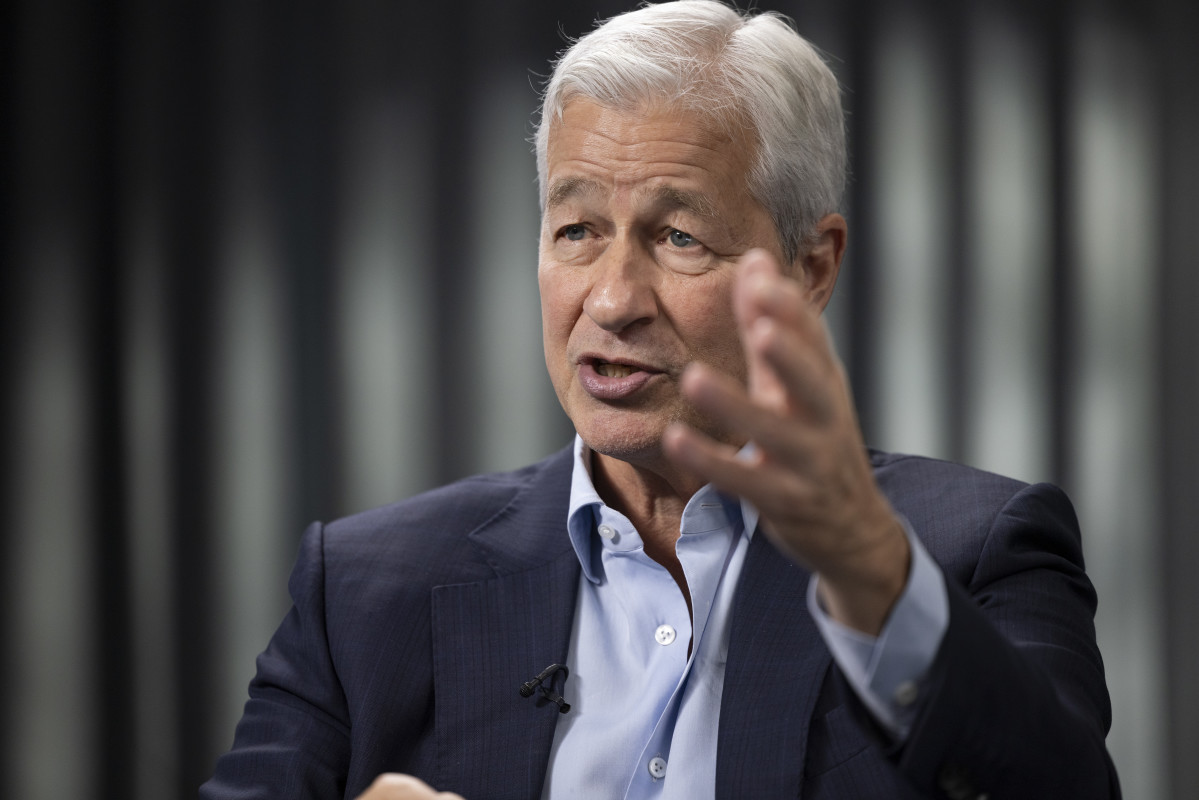
"Are we really going there?"
That's the question many of us would like an answer to, and it's how the most recent interview with JP Morgan (JPM) -) bank CEO Jamie Dimon began on Monday.
Related: JPMorgan's Jamie Dimon delivers a stern warning to remote workers
In a surprising interview with Bloomberg TV, the investment banking head, who is rarely short on opinions, gave his take on interest rates, the Russia-Ukraine war, artificial intelligence, and what the future of work might look like for future generations.
Jamie Dimon, who has previously sounded the alarm on short sellers and has been hypercritical of remote working, warned that we may not be done with hiked interest rates just yet. Though he doesn't seem particularly nervous about the prospect of them going higher.
"When I talk to my board I say, 'Can it go to 7%?' The answer is yes," he said, adding there are "factors that could drive it higher."
But Dimon isn't particularly worried about higher rates for the sake of higher rates. Stagflation, or slow economic growth paired with high unemployment, is the real bugbear to beware of.
Asked what the ripple effects of higher rates — and possible stagflation — might be, Dimon maintained a cool confidence.
"I'm not worried about JP Morgan. We can handle 7%. We can handle 2% again," he said.
Asked whether he could handle 8%, he answered, "Yeah, we can handle that, too."

Dimon has two major economic warnings
Dimon reiterated that "the worst thing, economically, would be stagflation. Where you have low growth, high interest rates, and...a lot of people struggling."
But when examining the future of the U.S. markets, it's not just stagflation we should be mindful of.
The current U.S. deficit is at a historic high of approximately $1.5 trillion, and we continue to spend money at a breakneck pace, particularly in foreign conflicts.
"At a minimum I expect volatile markets," he said, referencing the current deficit.
Pair that with the conflict between Russia and Ukraine and escalating tensions and rhetoric with China, and it's difficult to see a path forward that lends itself to a soft landing — without the U.S. intervening.
"It’s very hard to see really positive outcomes with China until the Ukraine war is resolved," he added.
It's not all bad, though. Dimon said he isn't particularly concerned about the continued rise of technology in the workplace, saying the addition of more tech has almost always been a good thing.
"People have to take a deep breath, OK? Technology’s always replaced jobs," he said. "Your children will live to 100 and not have cancer because of technology, and literally they’ll probably be working three and a half days a week."







